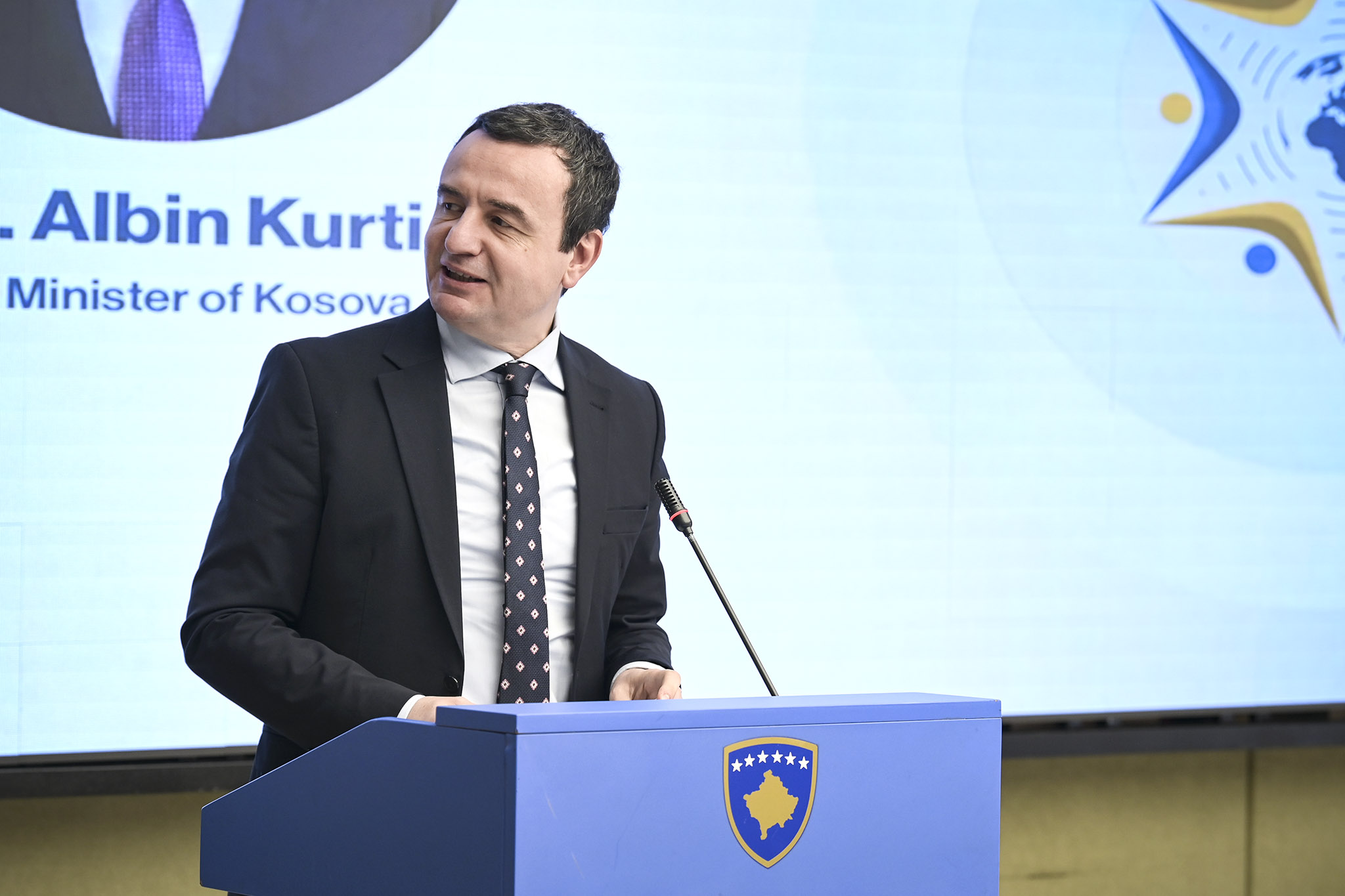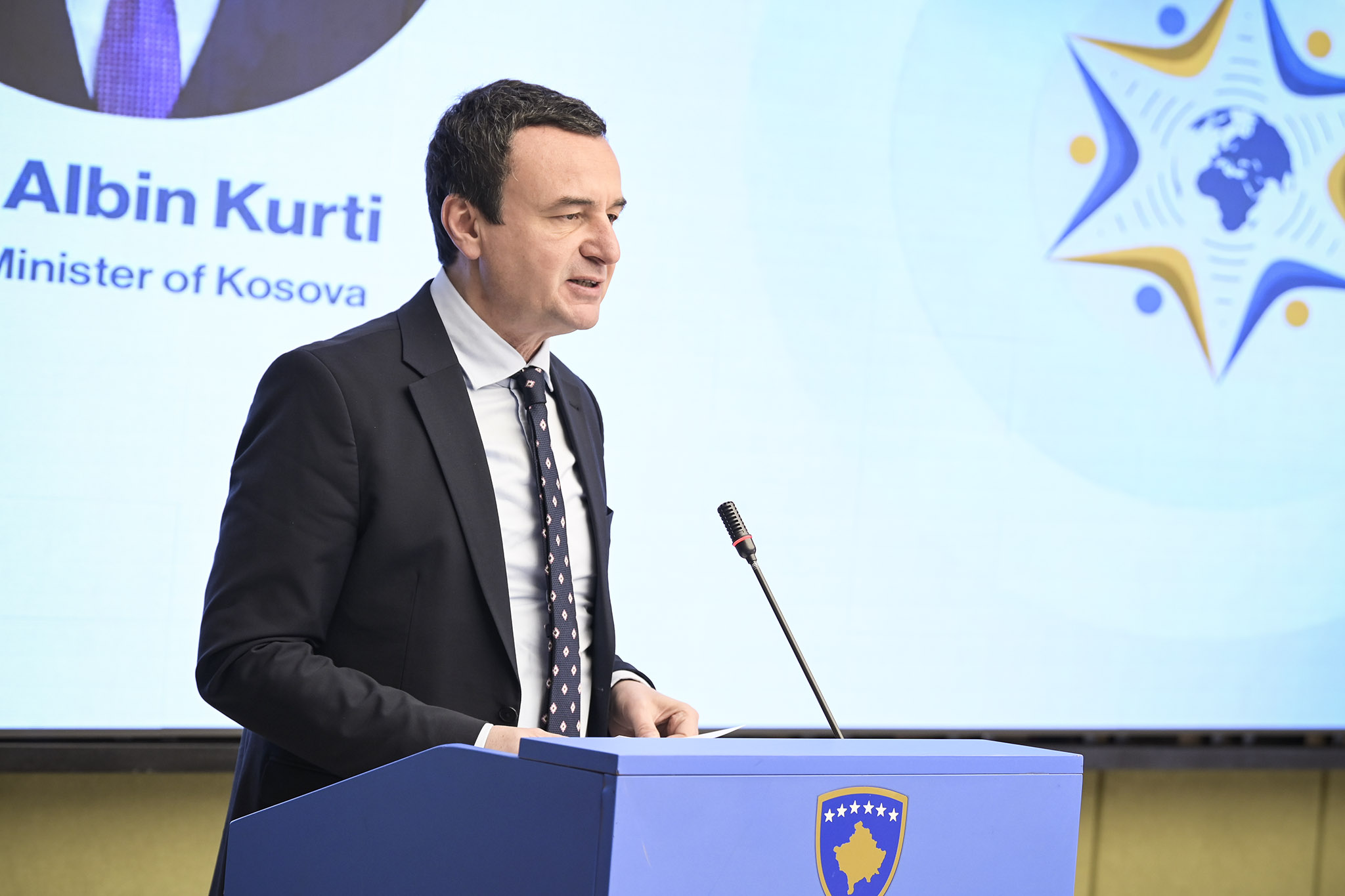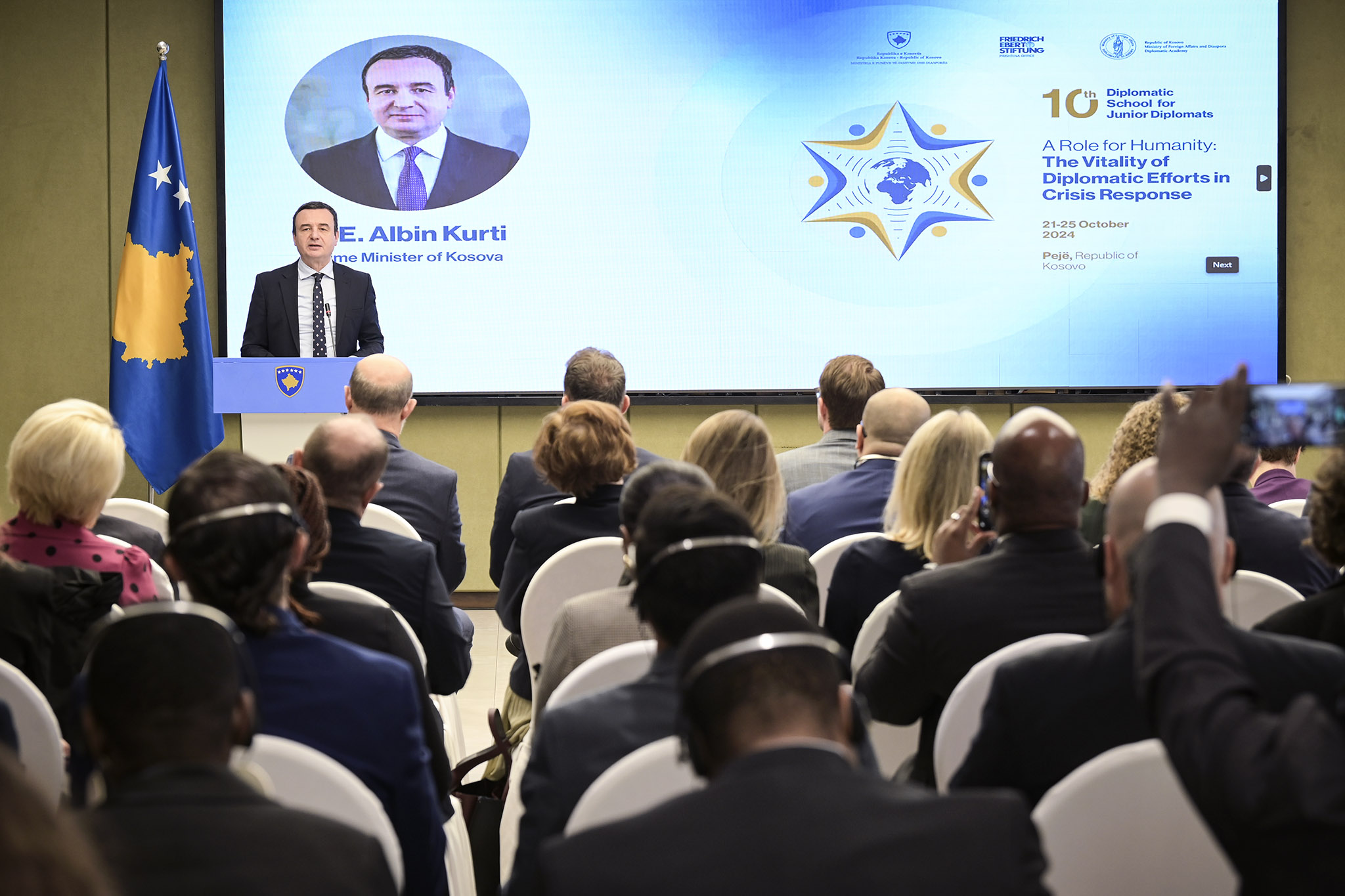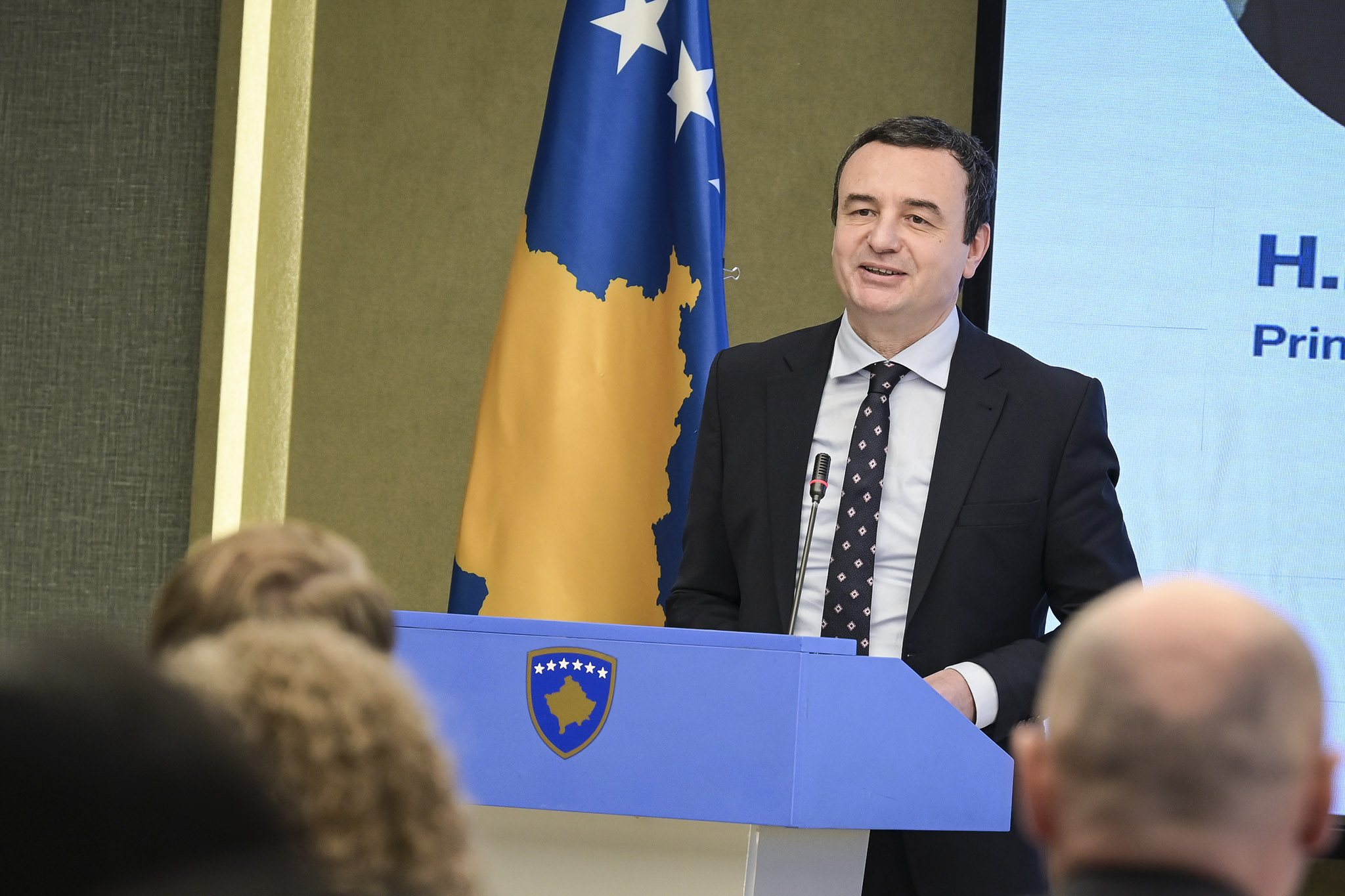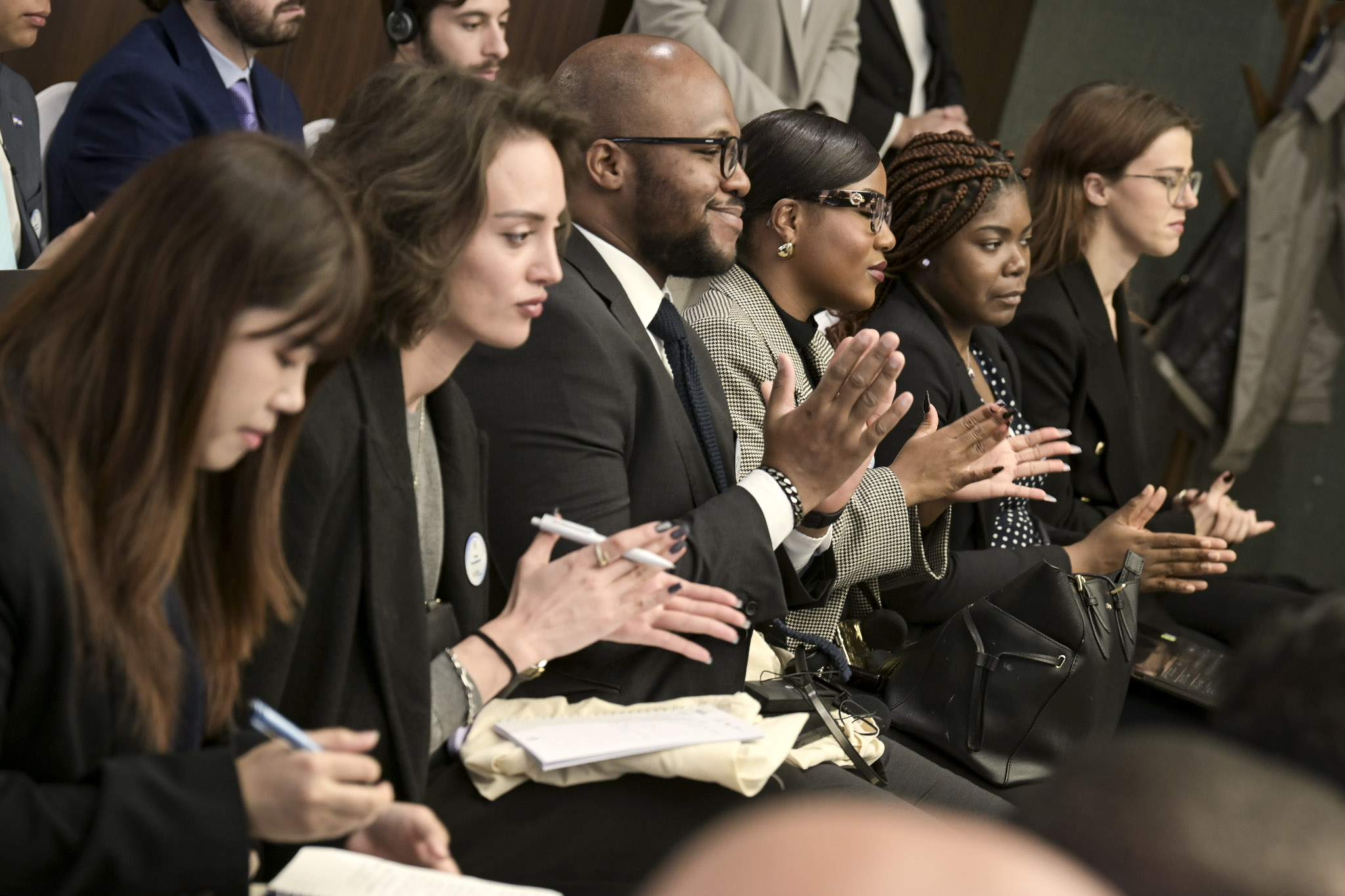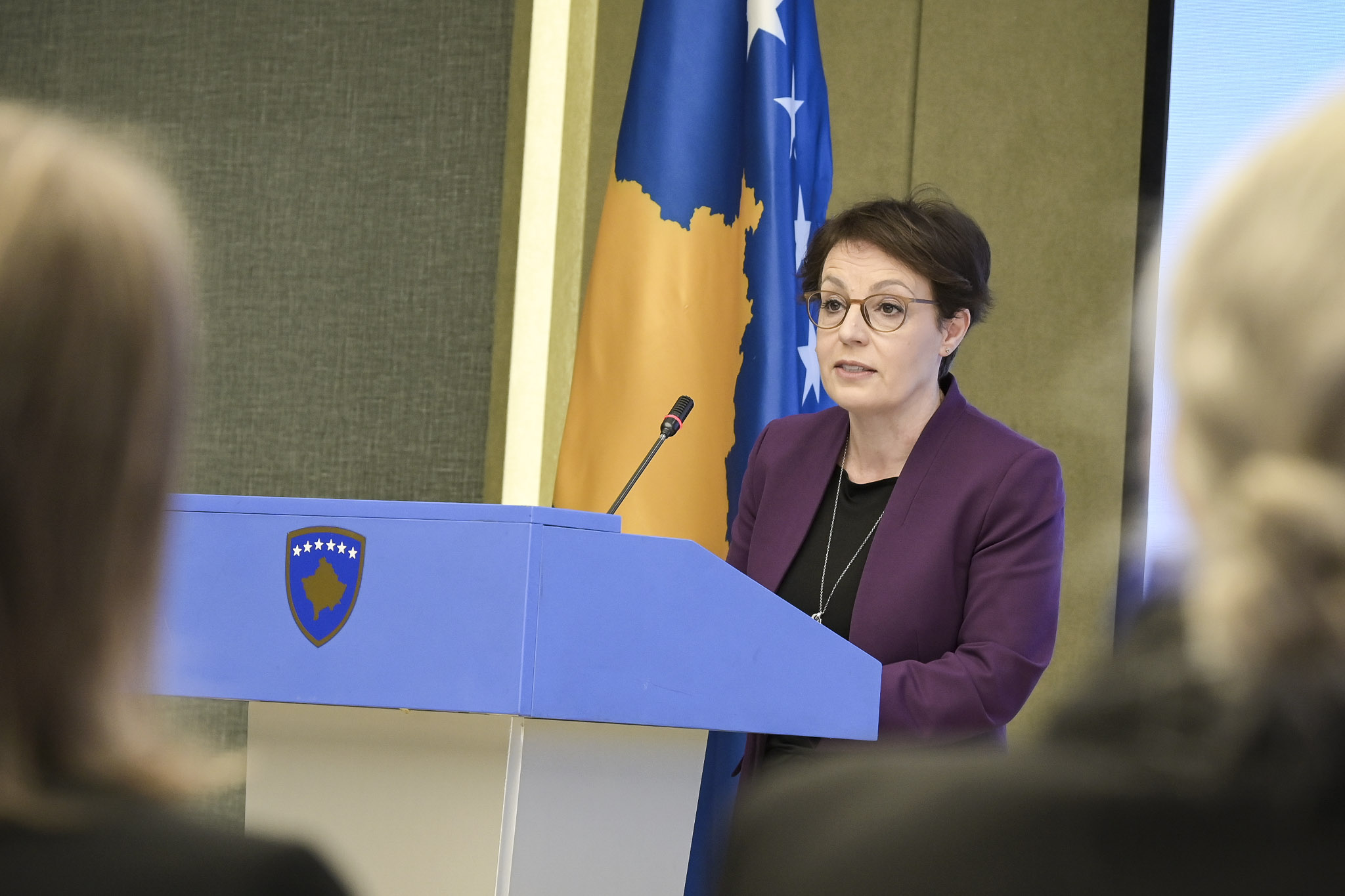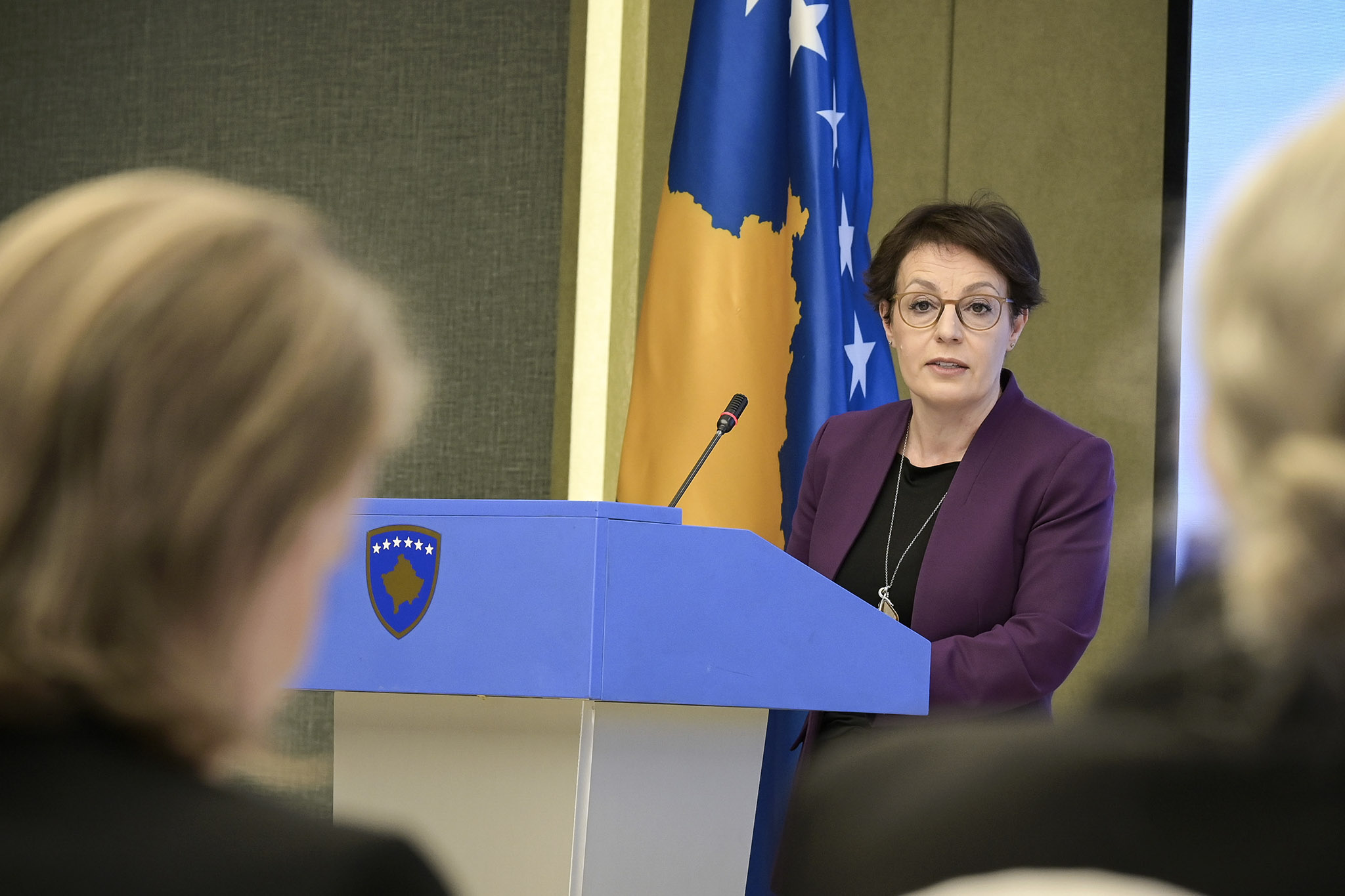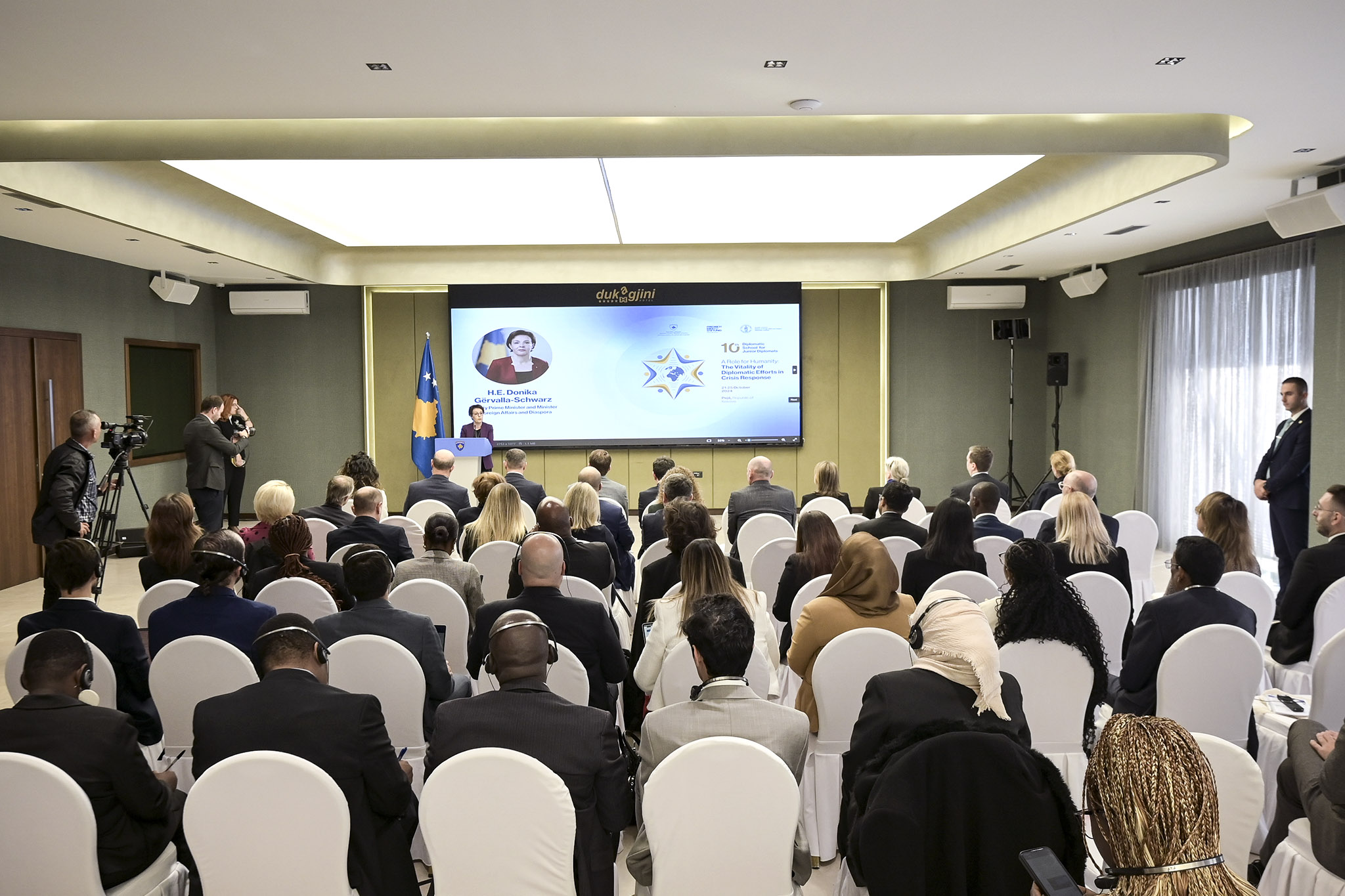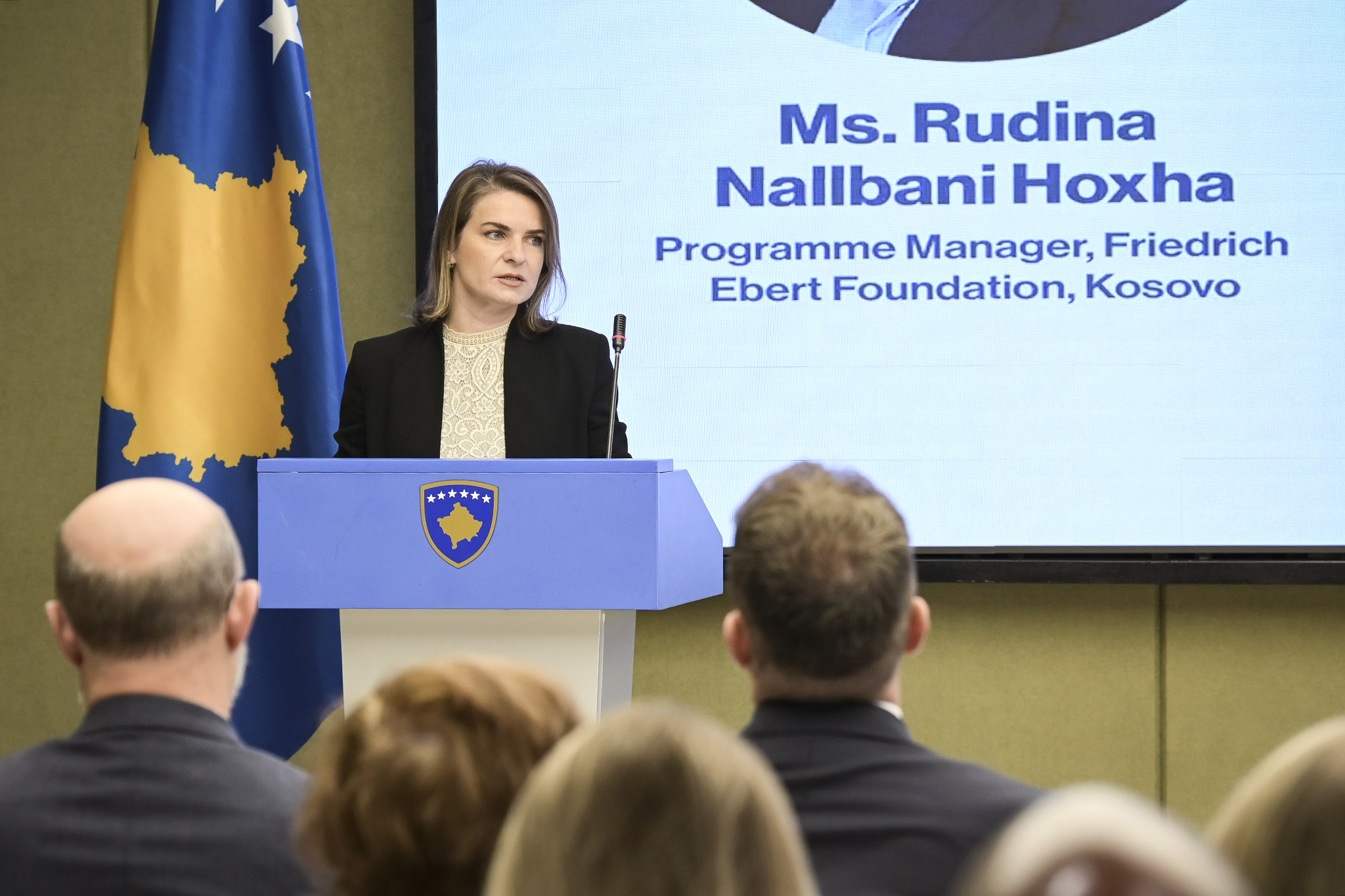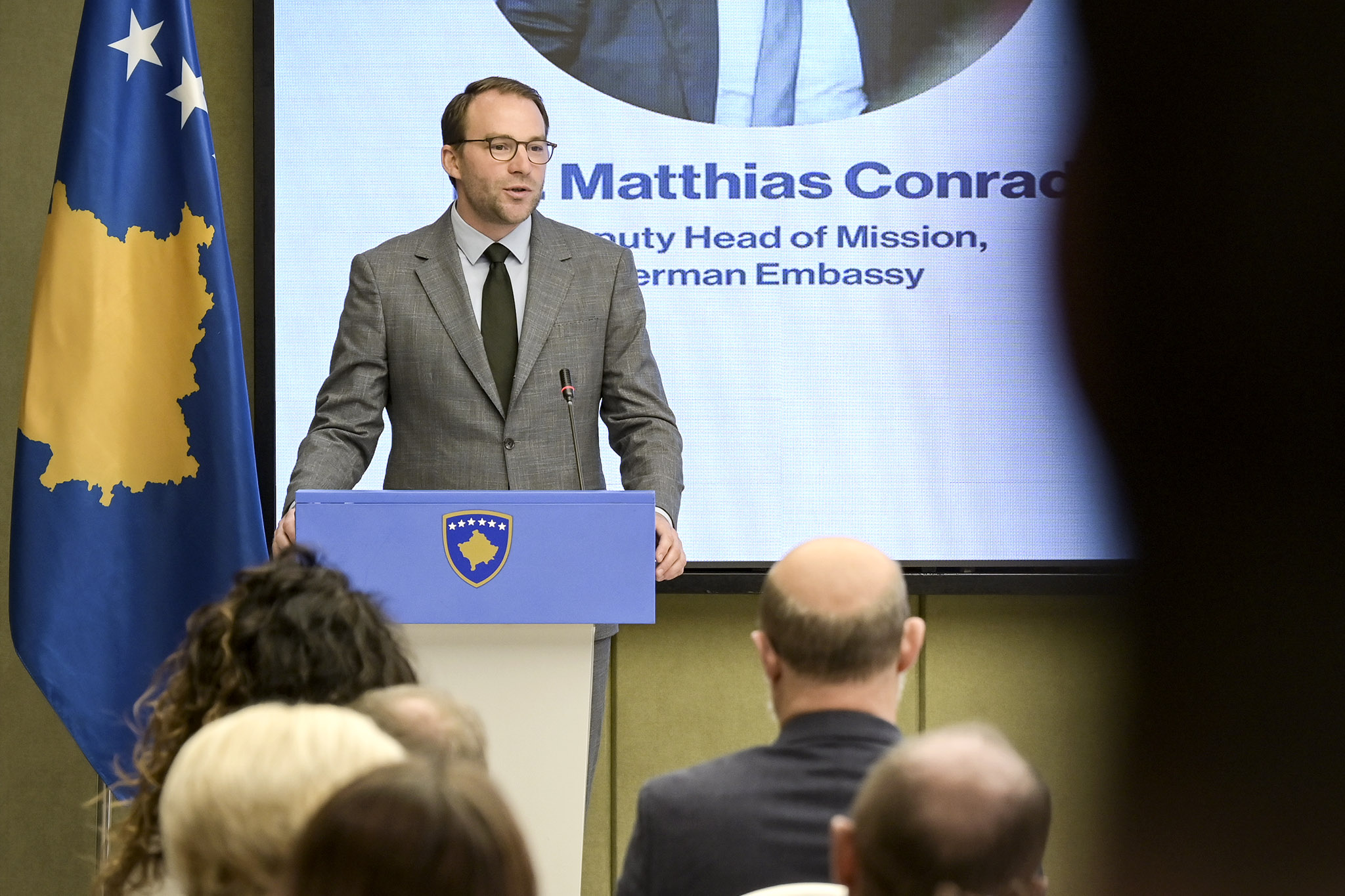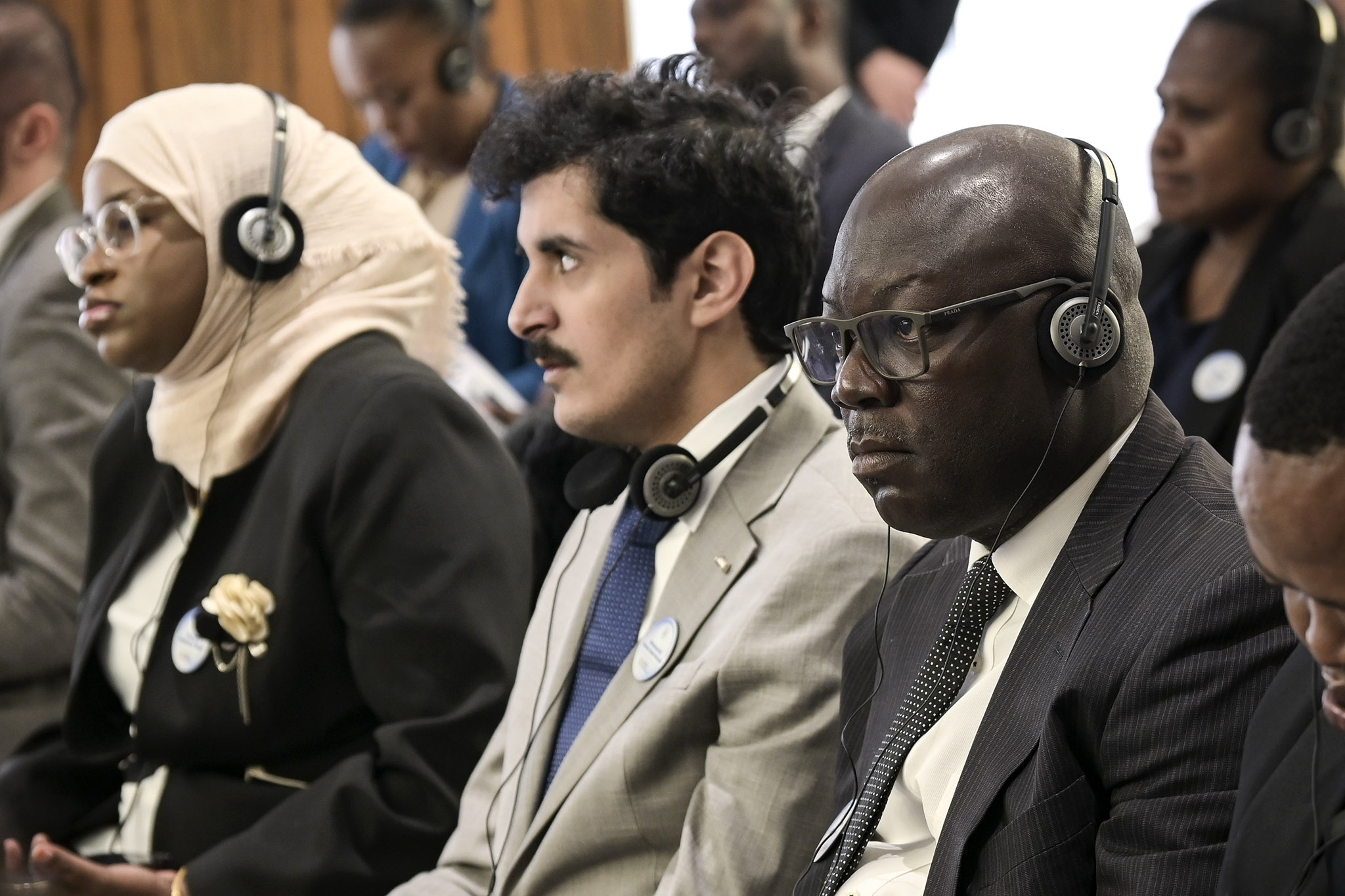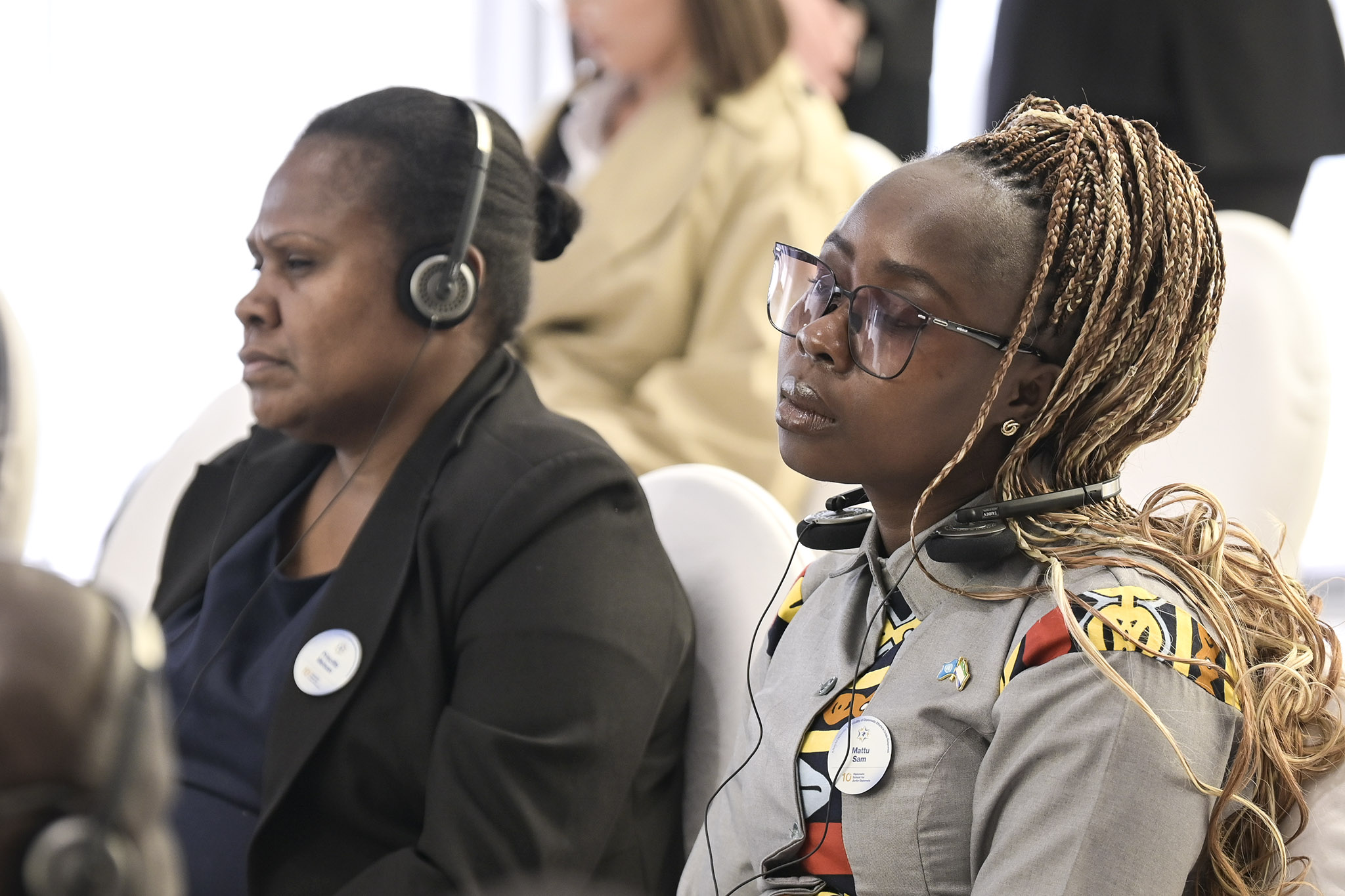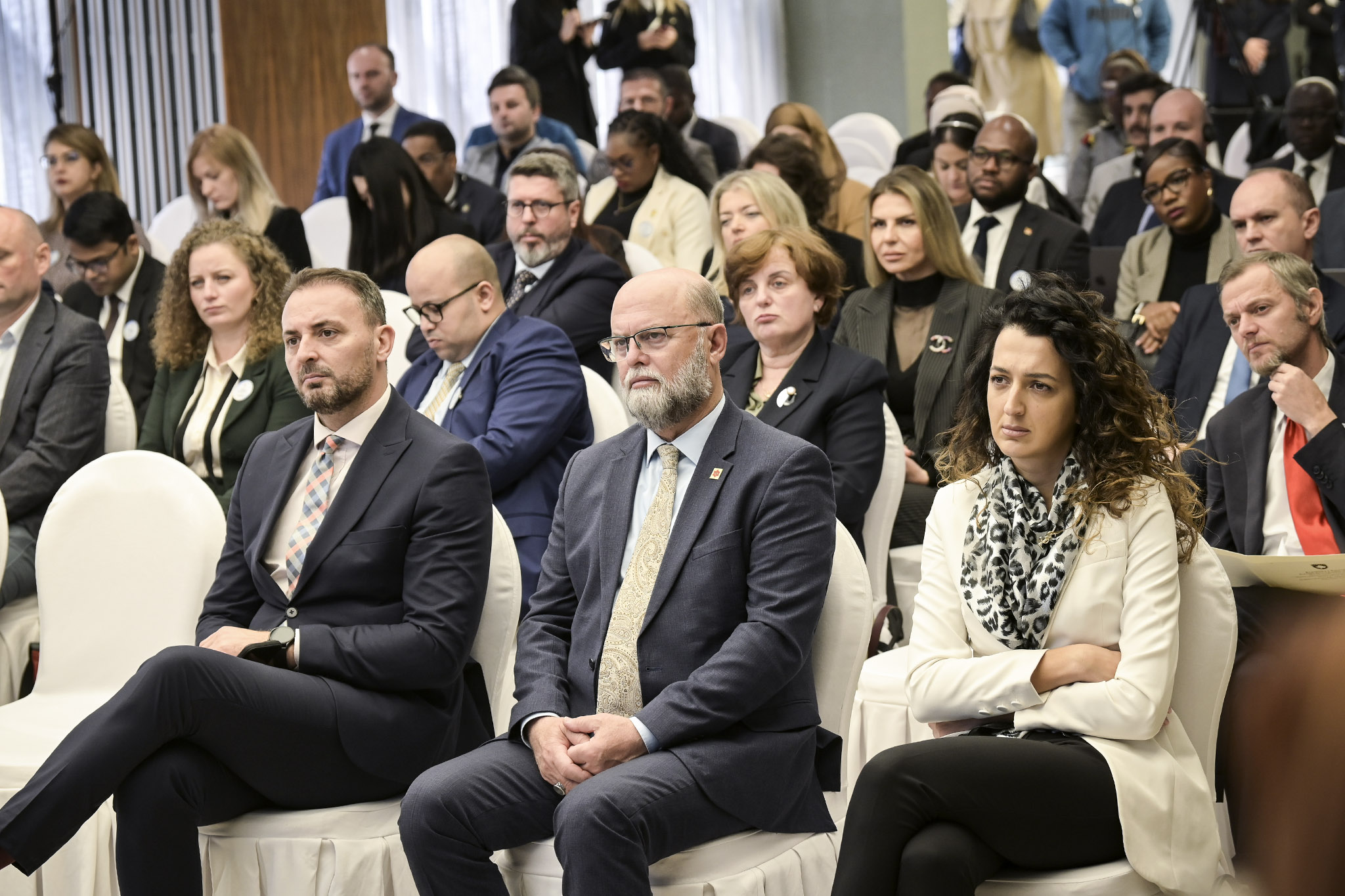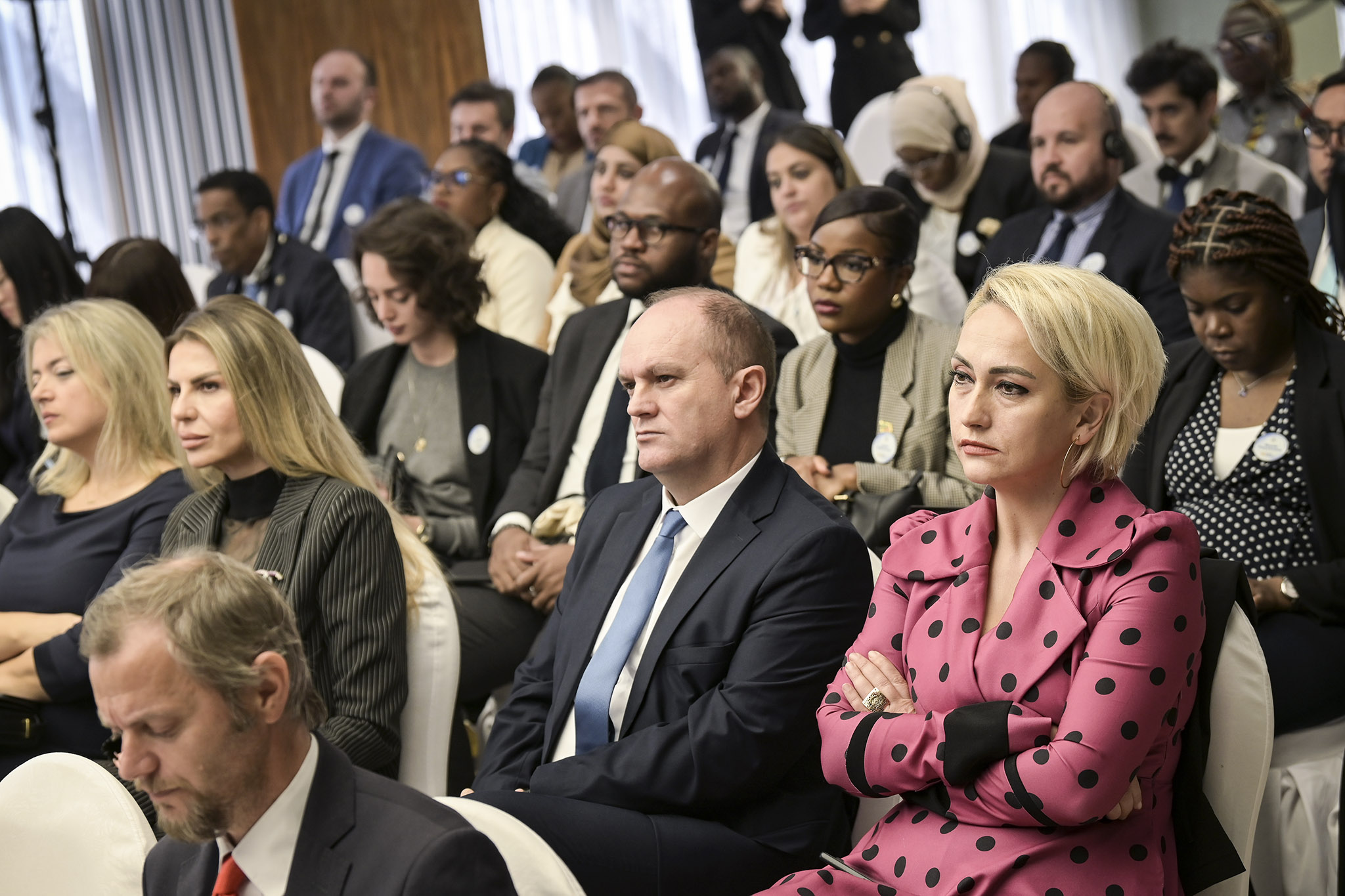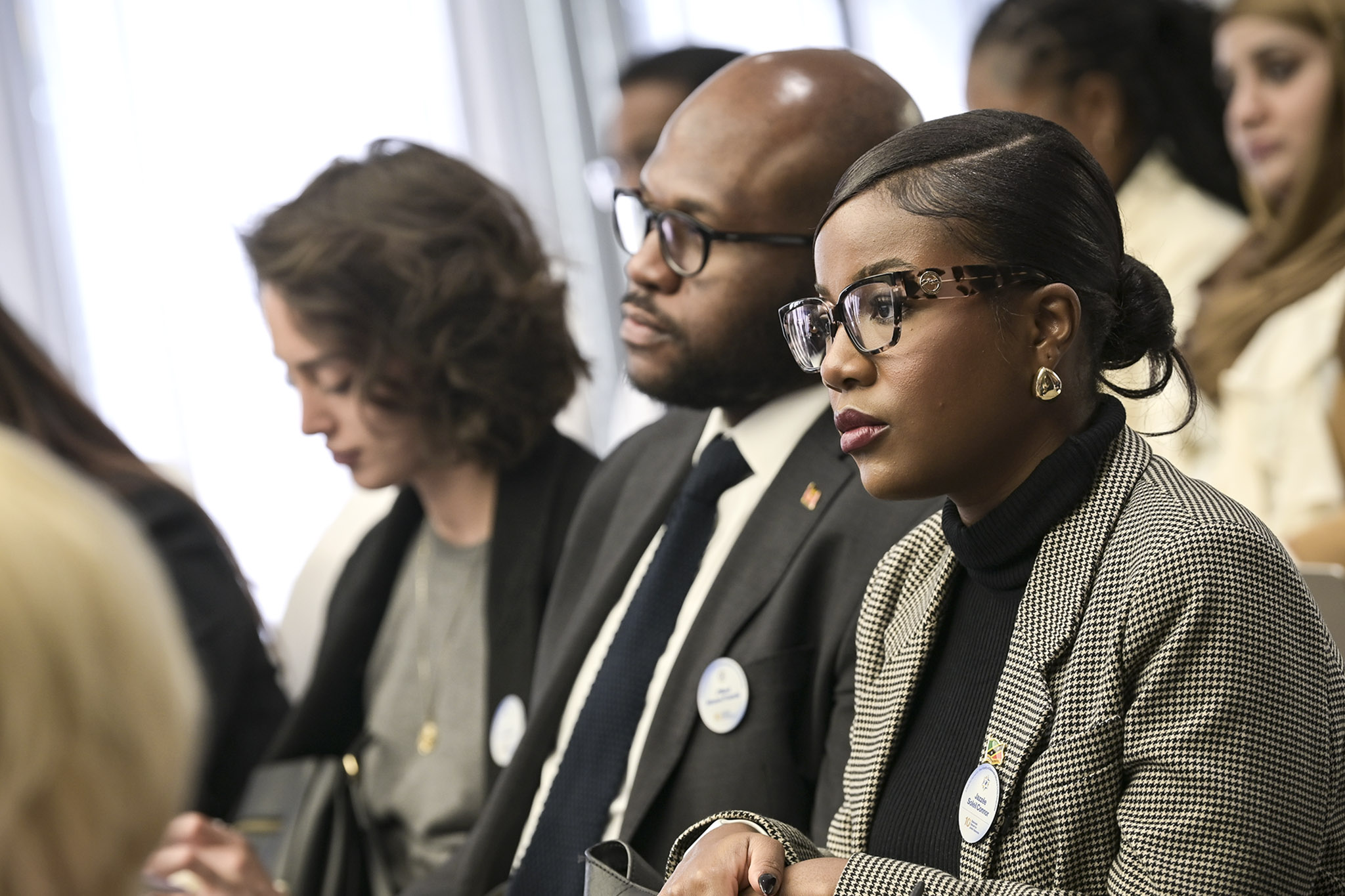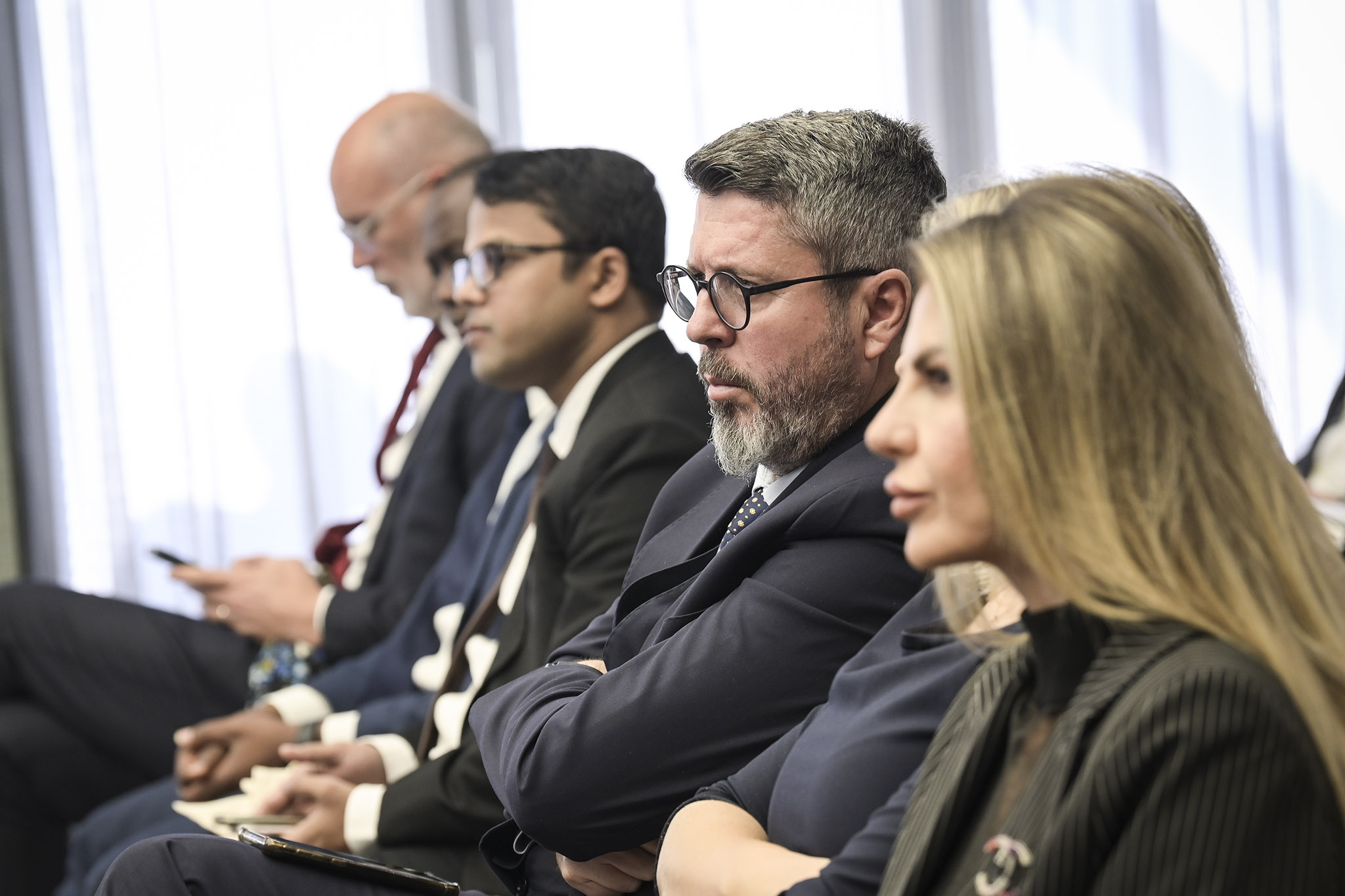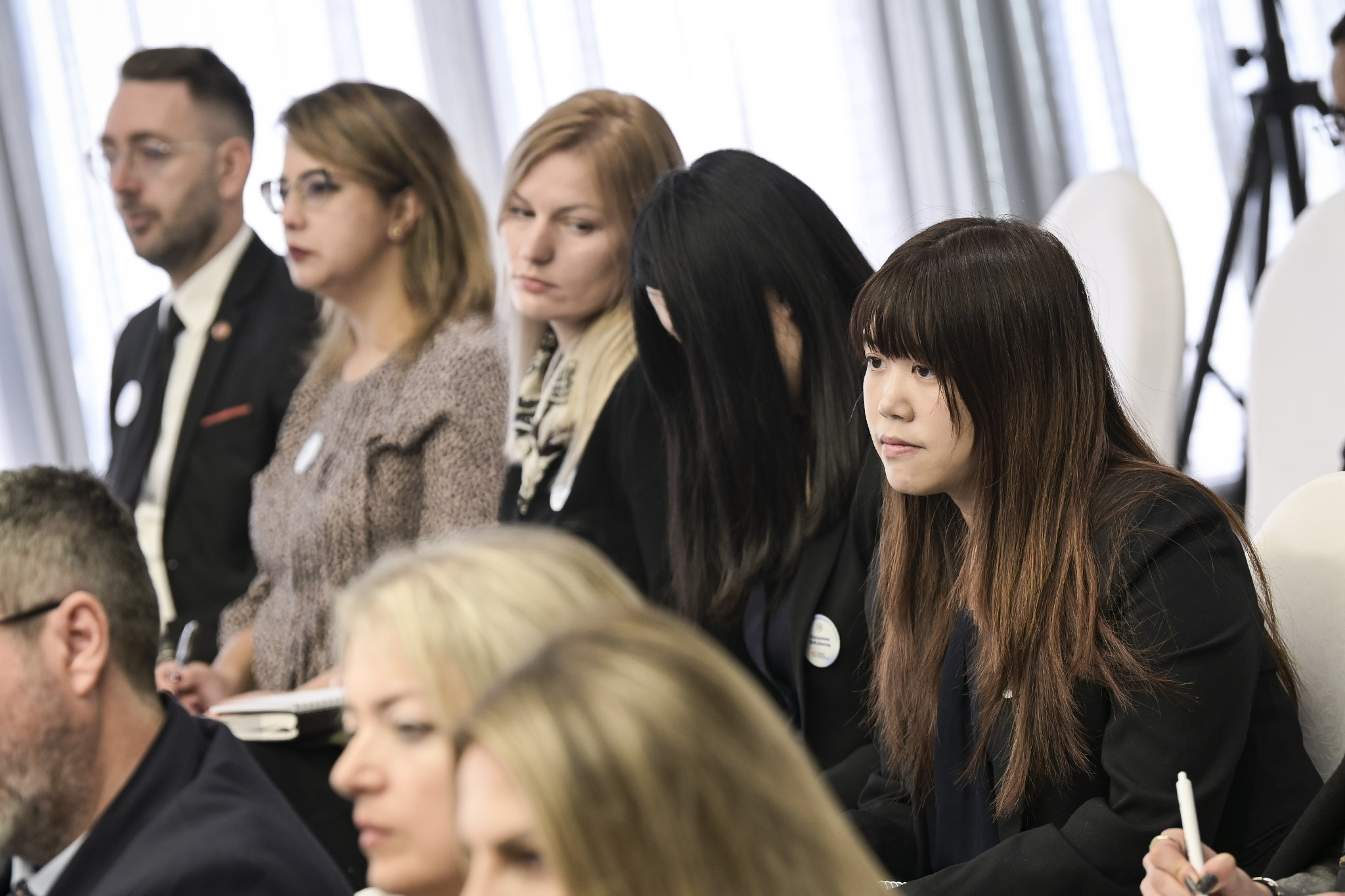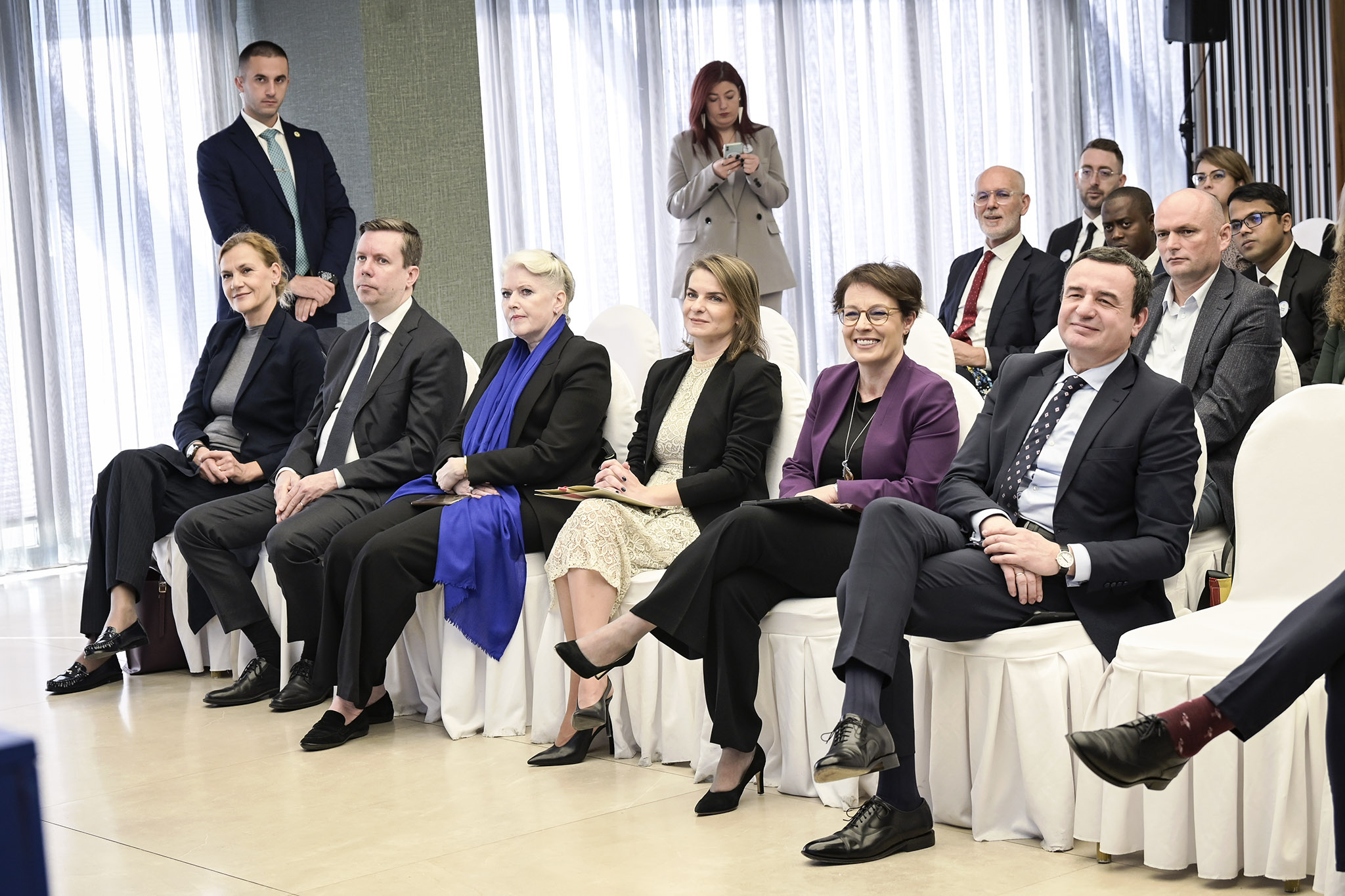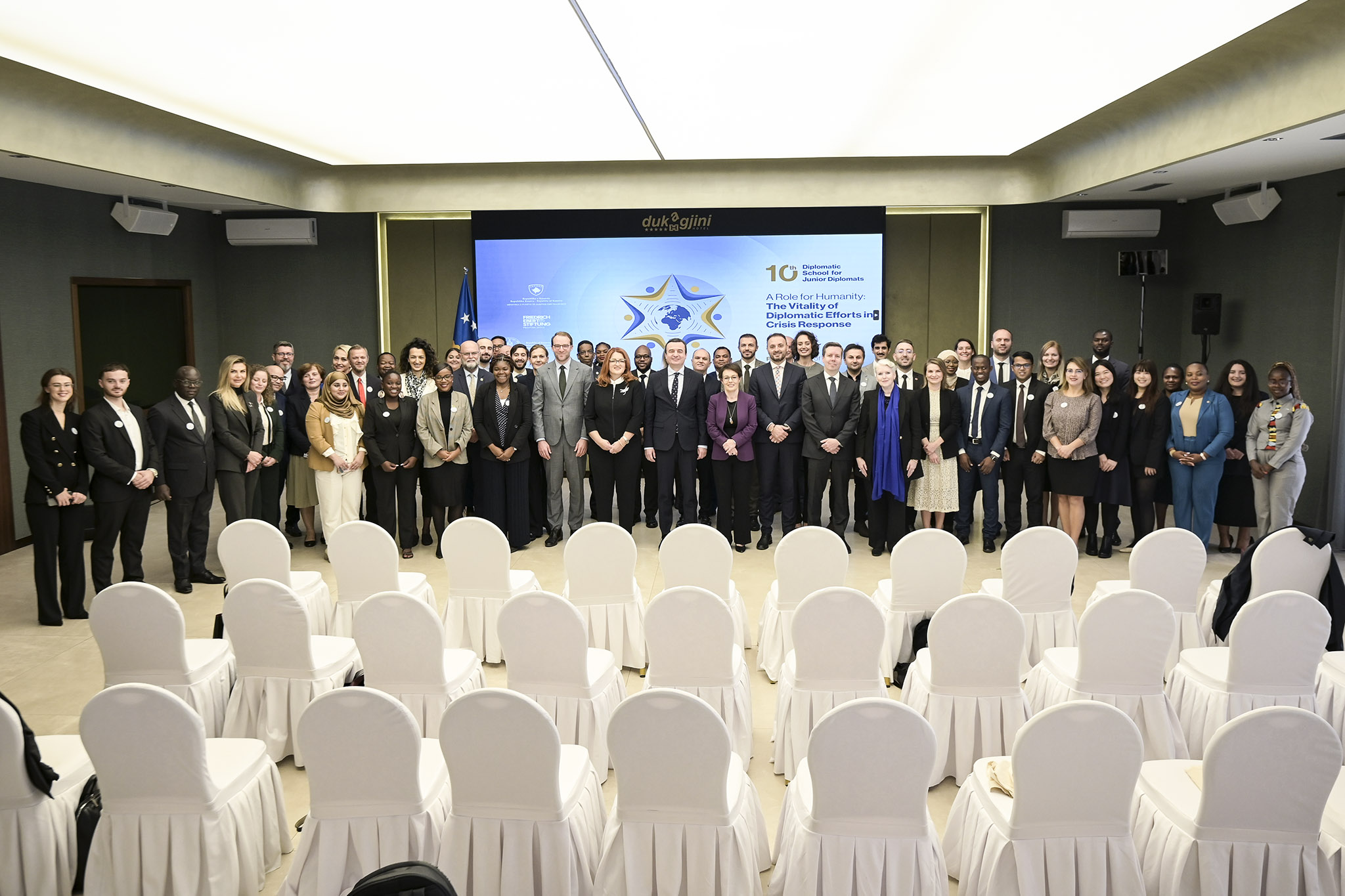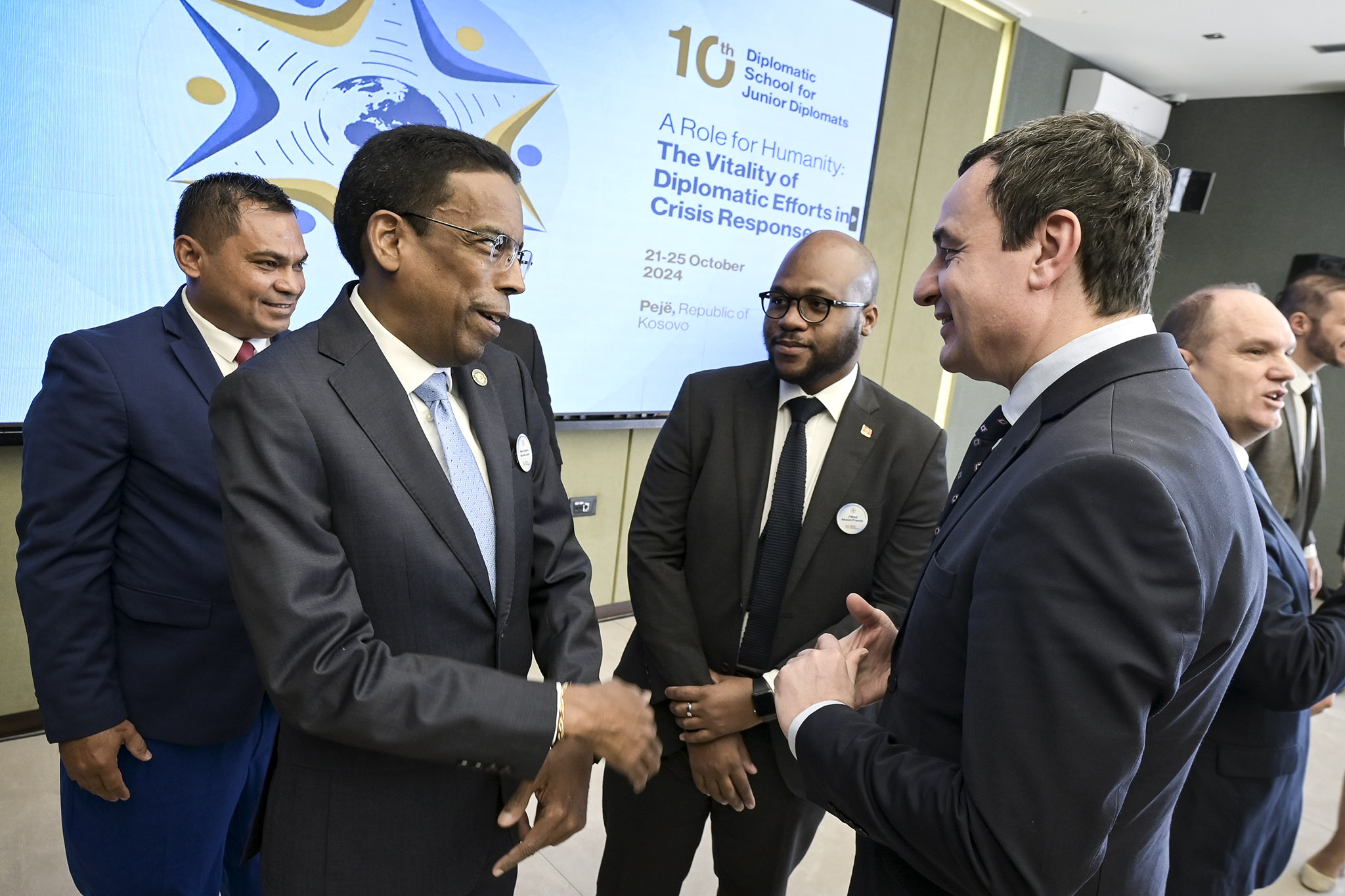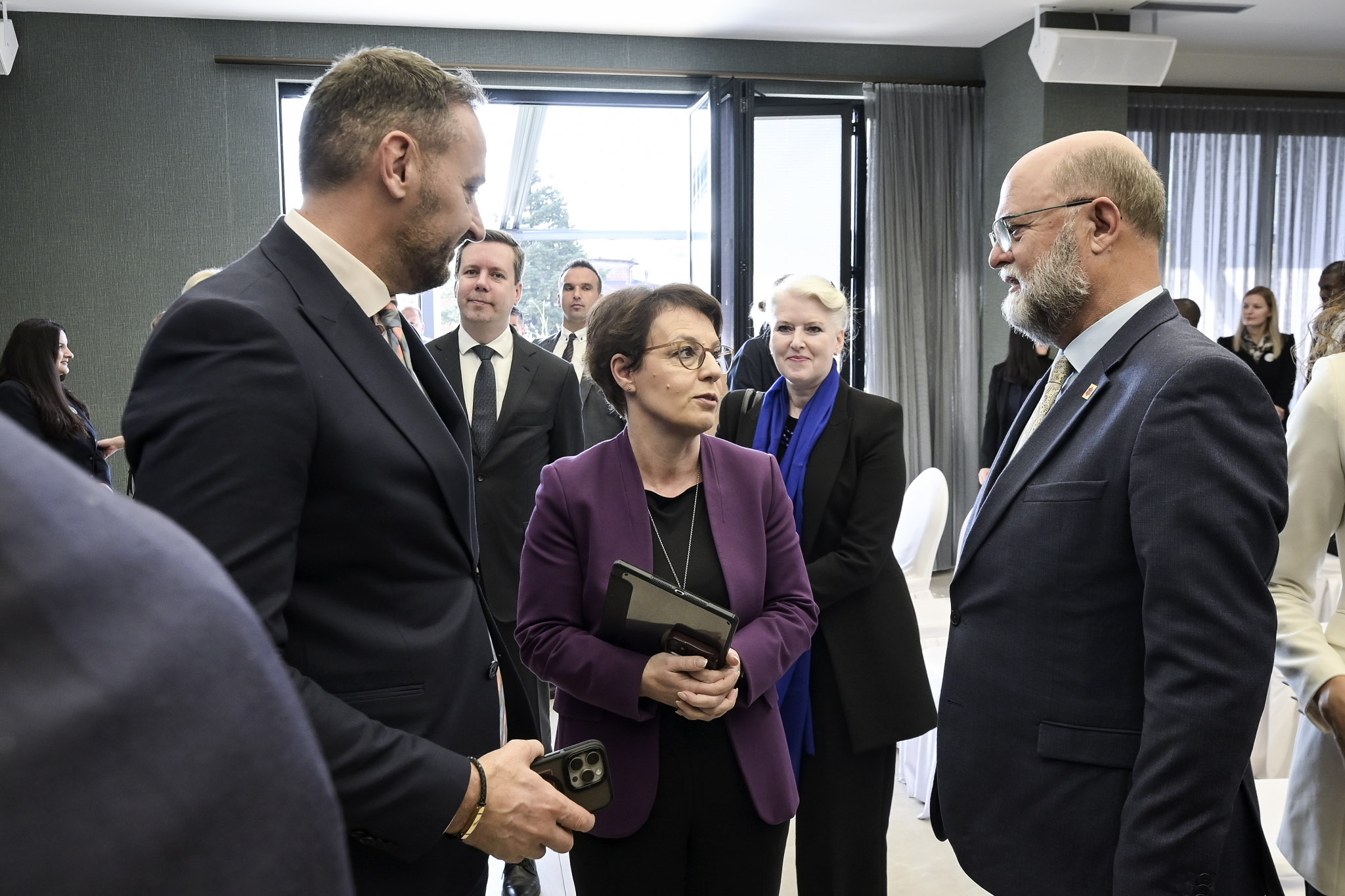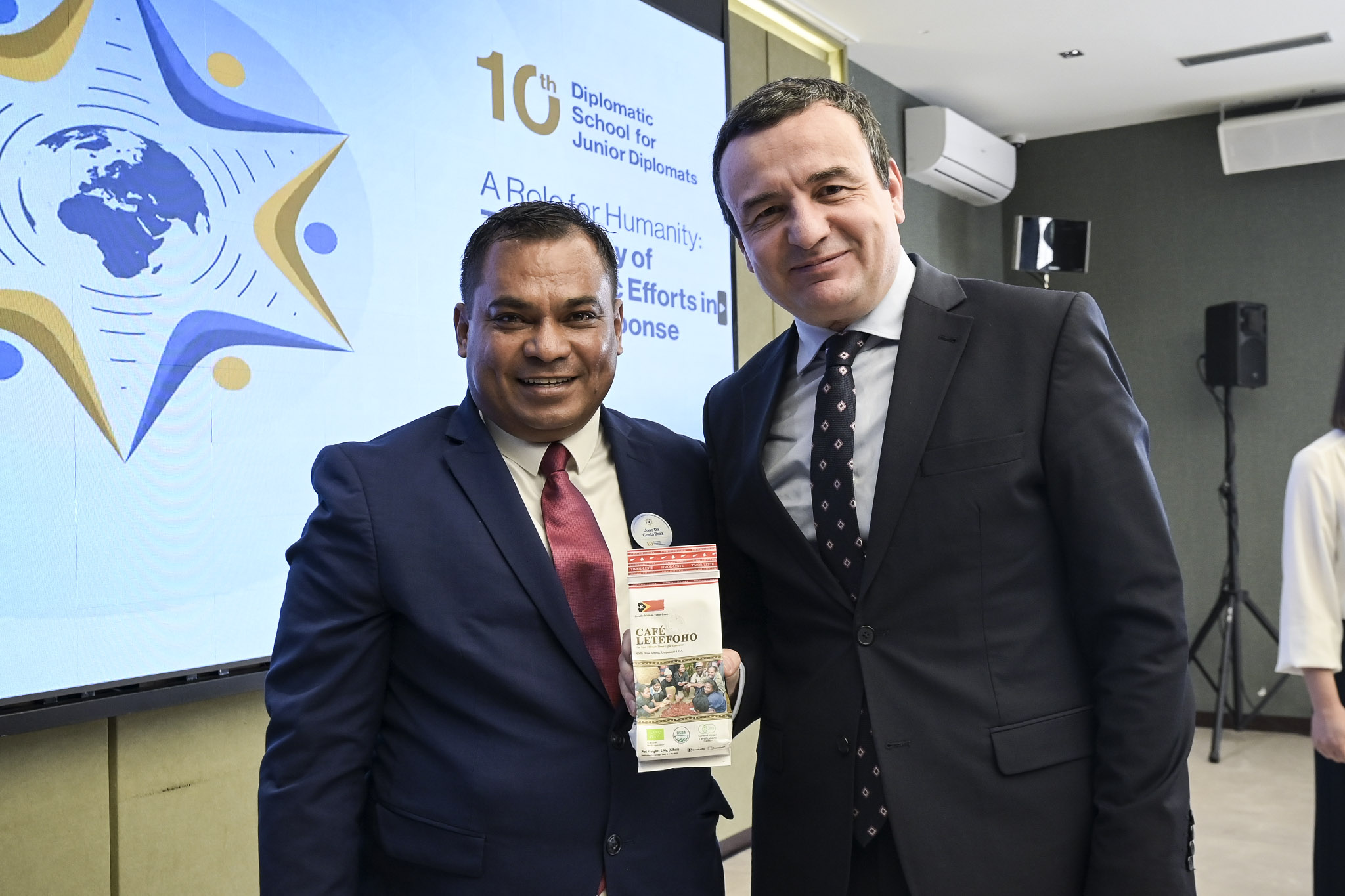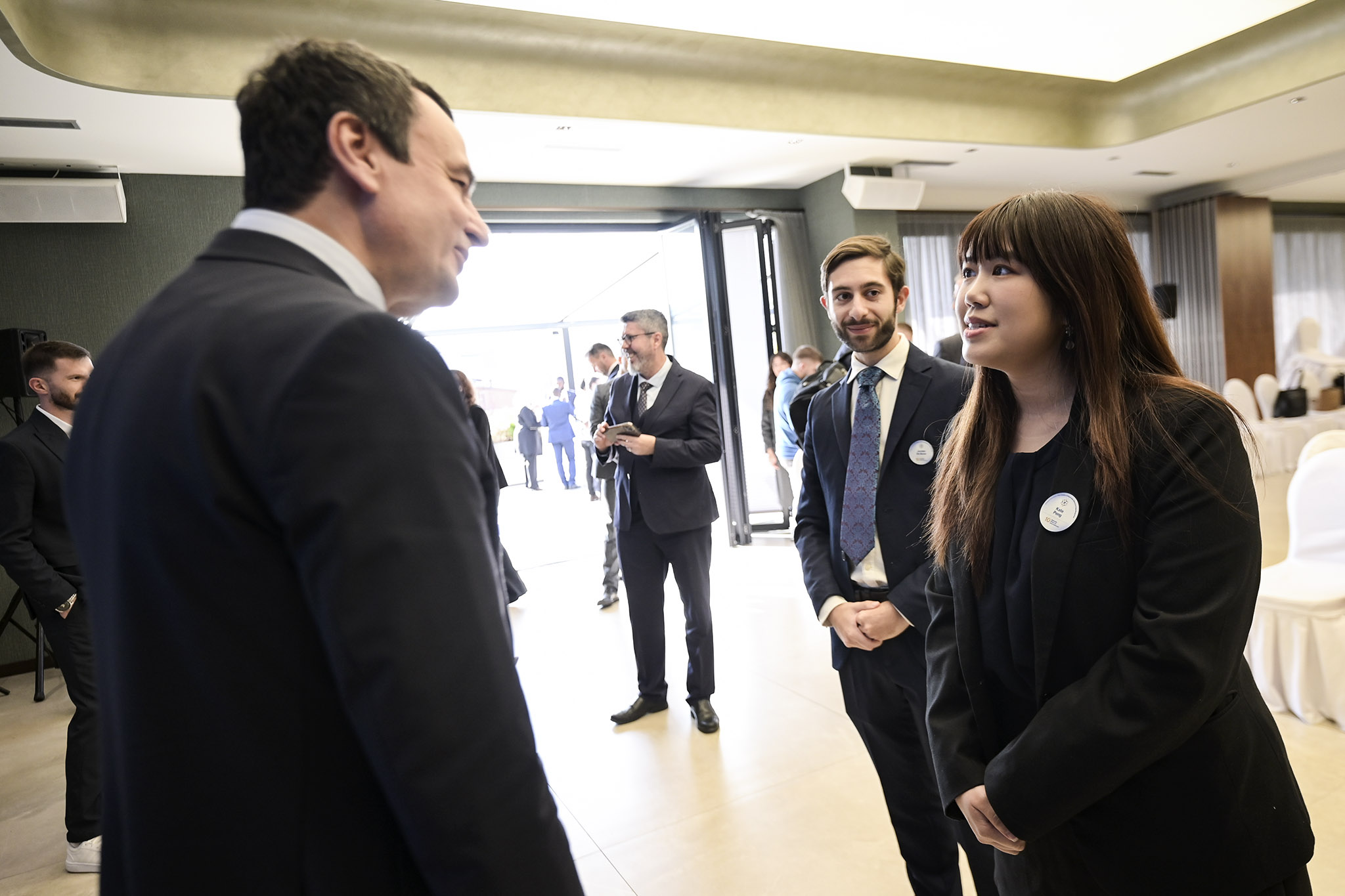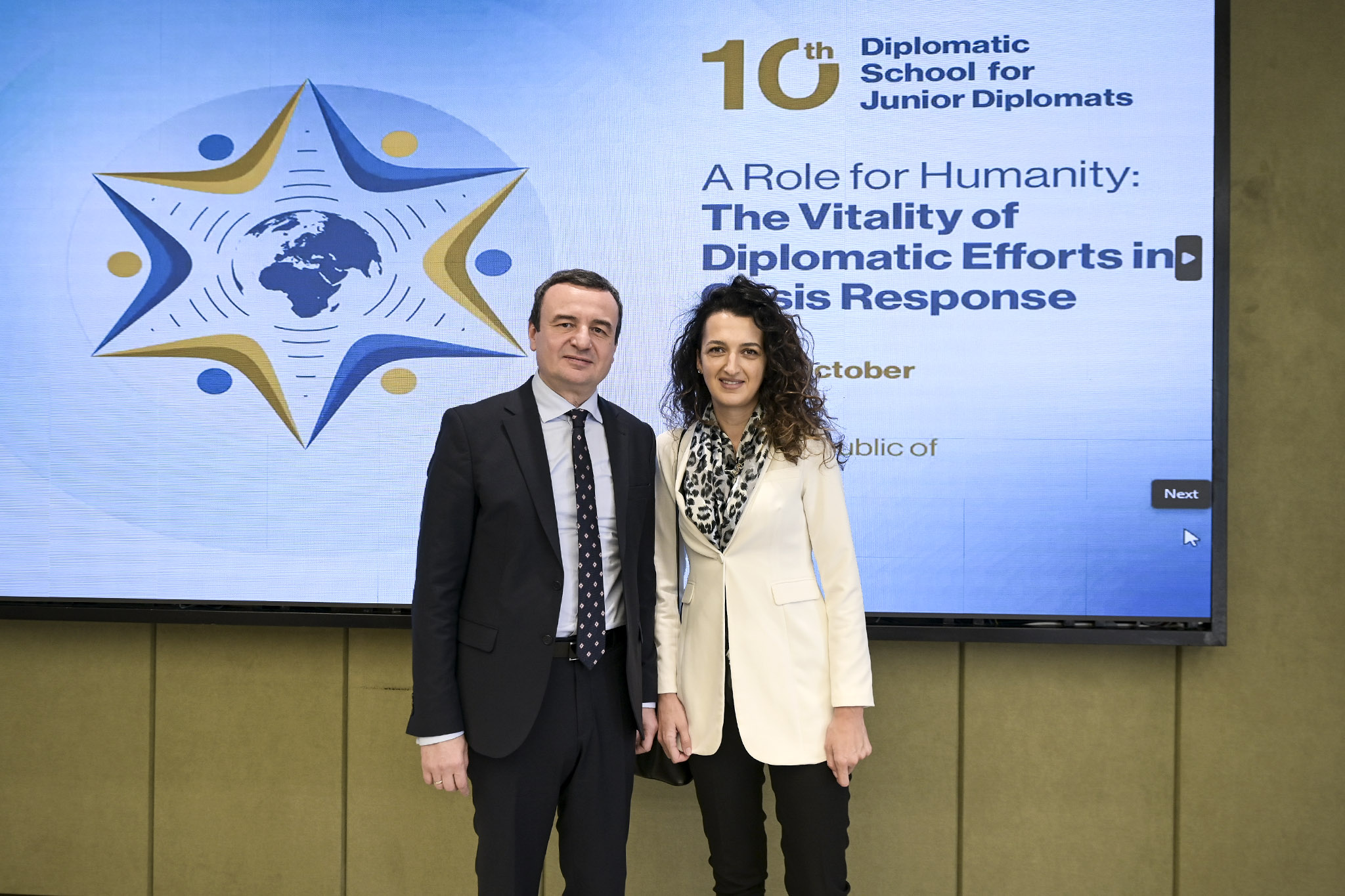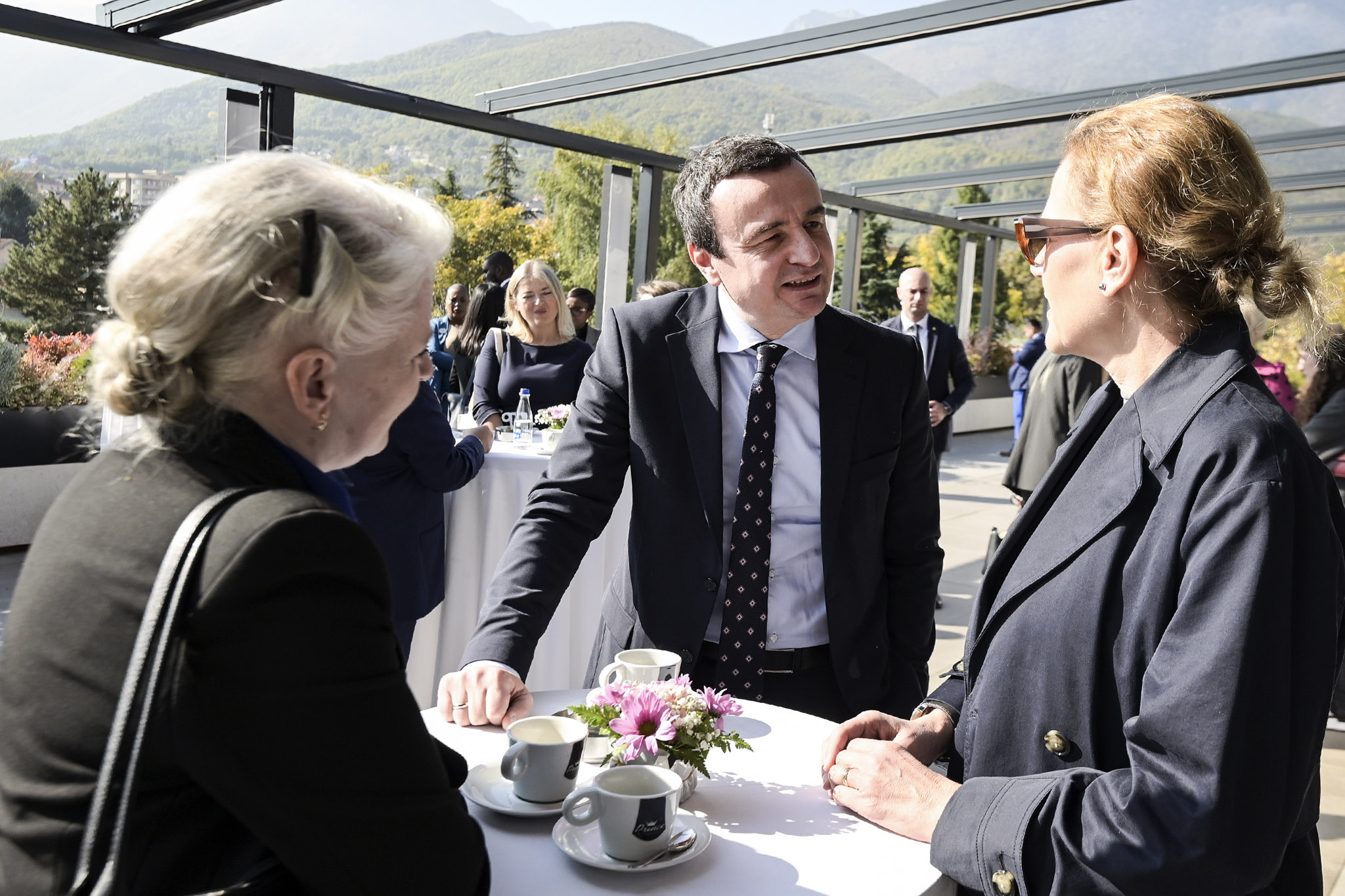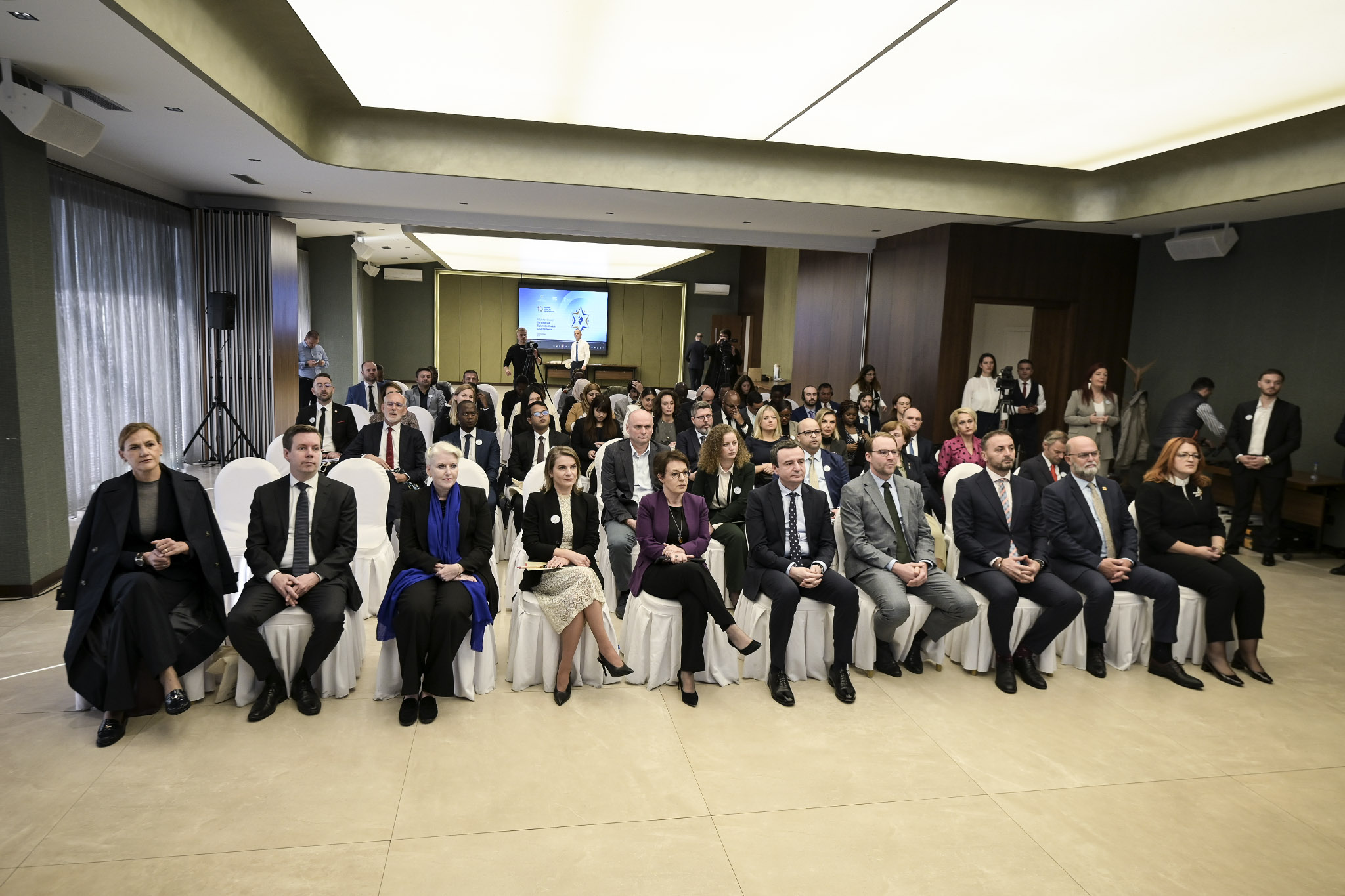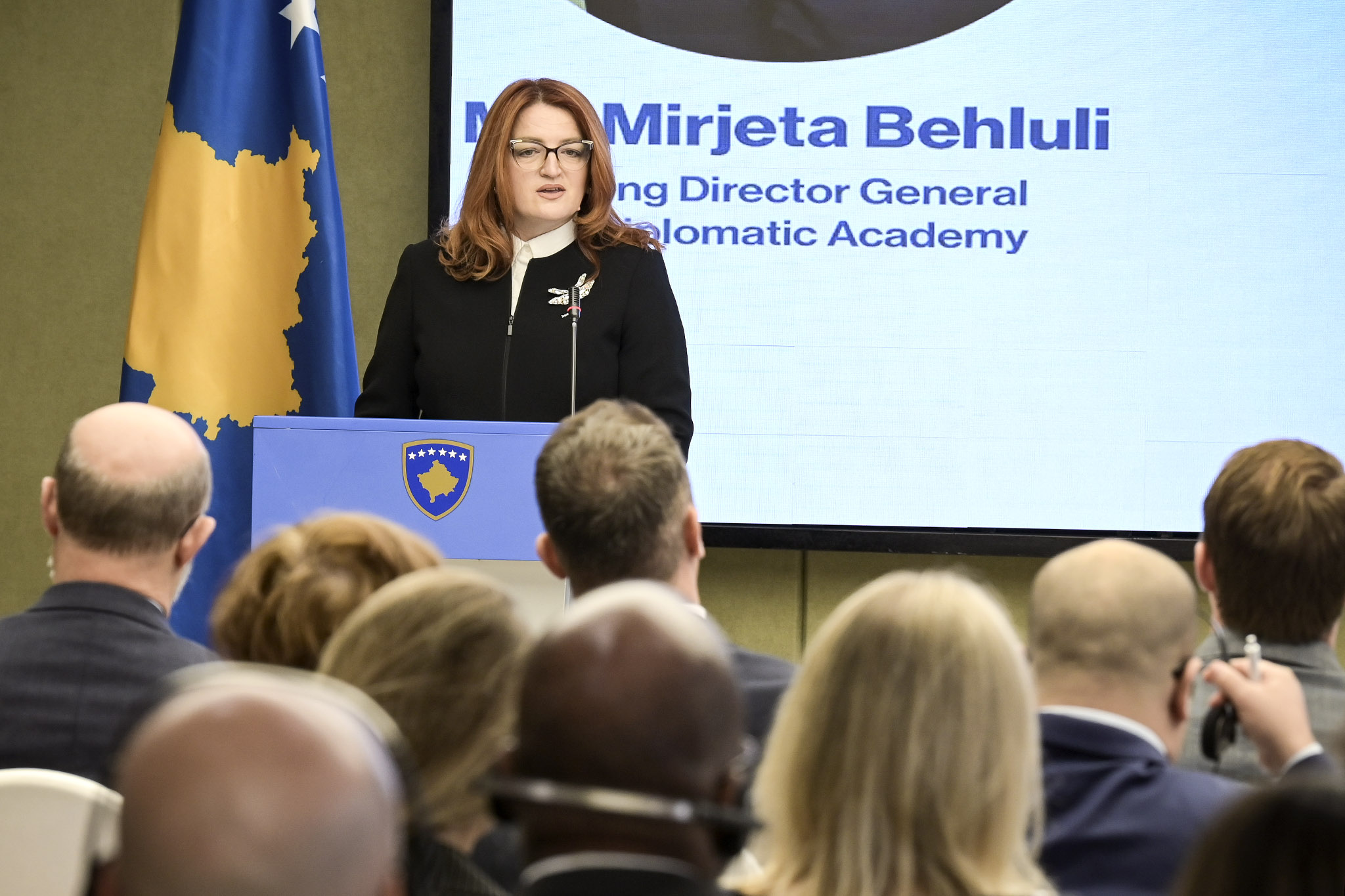Prishtina, 21 October, 2024
In the city of Peja, the solemn opening of the 10th edition of the Diplomatic School for young diplomats took place. For five days, from October 21 to 25, in a total of 13 different sessions throughout the week, participants will have the opportunity to attend discussion panels with experts in the field, senior government representatives, university professors and diplomatic representatives within the theme central theme of this year’s edition, “Role for Humanization: The Vitality of Diplomatic Efforts to Cope with Crises”.
The Prime Minister of the Republic of Kosovo, Albin Kurti, participated in the opening of this edition, whereupon he gave a welcome speech. Wishing the participants successful sessions and rich experience in Kosovo, he said that more than other countries, Kosovo is a country that relies heavily on diplomacy.
“From Madeleine Albright to Martti Ahtisaari, our achievements have mainly been the success of diplomacy, supported by hard power and soft power. As a country that has benefited greatly from international diplomacy, we strongly believe that it is our duty to invest in the training of great diplomats, not only to promote our much-needed progress but also to contribute and repay the world.The Diplomatic School, which is now celebrating its 10th anniversary, is one of the the ways we are doing this”, said the Prime Minister.
He said that, for a diplomacy to be successful, a good understanding of the history of the region, an understanding of the culture of the people or the people and consideration of the country’s economy is required.
“Mastering history means being able to think in the context of time and find answers to current questions, because many of the current challenges are not really new. They come from a historical background that presents itself to us in a different form, but rooted in history, nurtured by culture and conditioned by economics”.
It is not an exaggeration to say that the future of humanity will depend on young diplomats like you, said Prime Minister Kurti as he addressed the participants of the 10th edition of the Diplomatic School, wishing them productive discussions and a pleasant stay in Kosovo. with the hope that many of them will be able to meet again in the future in their diplomatic engagements.
Alongside the Prime Minister, the Deputy Prime Minister and Minister of Foreign Affairs and Diaspora, Donika Gërvalla-Schwarz, also gave a welcome speech, who emphasized that the presence today, precisely in Kosovo, of participants from 30 different countries, underlines our shared belief in the essential role of diplomacy.
“Kosovo is the product of international cooperation, born of a determined global effort to stop war and genocide, to ensure peace and build a future based on justice and mutual respect. Our history serves as a reminder of the importance of diplomacy in dealing with crises and in preventing them before they happen”, said Minister Gërvalla.
She added that the Republic of Kosovo is a state with strong values-based attitudes, where 90% of our citizens support EU and NATO integration, and this reflects our unwavering commitment to democracy, human rights and the rule of law.
Mirjeta Behluli, Acting General Director of the Diplomatic Academy, Rudina Nallbani Hoxha, Program Manager at the Friedrich Ebert Foundation and Mattias Conrad, Deputy Ambassador of Germany in Kosovo, also gave welcoming words at the opening ceremony.
The 10th anniversary edition of the Diplomatic School for young diplomats is organized by the Ministry of Foreign Affairs and Diaspora, in cooperation with the Friedrich Ebert Foundation.
Prime Minister Kurti’s complete speech:
Dear Ms. Donika Gërvalla-Schwarz, Deputy Prime Minister and minister of Foreign Affairs and Diaspora of the Republic of Kosova,
Dear Ms. Mirjeta Behluli, acting Director General of Diplomatic Academy of Ministry of Foreign Affairs and Diaspora,
Dear Mr. Ilir Muçaj, Secretary General of Ministry of Foreign Affairs and Diaspora,
Dear Ms. Rudina Nallbani Hoxha, Program Manager at Friedrich Ebert Foundation,
Dear ambassadors and representatives of diplomatic missions in Kosova,
Dear young diplomats,
Ladies and gentlemen,
It is a great pleasure to address you today, on this special occasion marking the 10th edition of the Kosova Diplomatic School, here in the historic city of Peja.
From Illyrian, Byzantine, and Ottoman times, through the two world wars to the present day, Peja has withstood the test of time and preserved its history. This is where trade caravans from Venice and Ragusa once passed, and where important events, such as the League of Peja in 1899, took place.
I hope you have the time not only to learn from the panels of renowned experts invited by our Ministry of Foreign Affairs but also to savor the majestic peaks and lush valleys of the Rugova Mountains National Park, just minutes away from where we are now gathered.
More than most other states, Kosova is a country that relies deeply on diplomacy. From liberation to independence and the normalization of relations with our northern neighbor, diplomacy has played a pivotal role in changing the status quo and advancing progress.
From Madeleine Albright to Martti Ahtisaari, our achievements have also been the success of diplomacy, supported by both hard and soft power. As a country that has greatly benefited from international diplomacy, we strongly believe it is our duty to invest in training great diplomats — not only to drive our much-needed progress but also to give back to the world. The Kosova Diplomatic School, now celebrating its 10th anniversary, is one of the ways we are doing so.
By organizing this school for the past ten years, we recognize the critical role that diplomats play in addressing the most serious challenges facing the world today. It is true that no amount of diplomacy was able to dissuade Russia from its illegal and unprovoked war of aggression against Ukraine; but diplomacy will certainly play a role in finding the solution. And as the war in Gaza continues into its second year, our hopes for peace — and for avoiding a wider conflict — rest with a small group of diplomats from multiple countries, working tirelessly to end the hostilities that have claimed far too many innocent lives, starting with Hamas’s brutal terrorist attack on October 7 of last year.
The global fight against climate change is another reminder of the importance of diplomacy. Without the successful negotiation of the three main multilateral climate-change agreements — namely the United Nation Framework Convention on Climate Change, the Kyoto Protocol, and the Paris Agreement — the world would have no hope of succeeding in our collective struggle against global warming. As with the conflicts in Ukraine and Gaza, the long-term solution to this challenge will ultimately depend on the continued work of skilled and dedicated diplomats.
All of this is to say that the skills you will be developing and the experience you will be getting over the next five days are of vital importance — not only to your careers but to the world at large. It is no exaggeration to say that the future of humankind will depend on young diplomats like yourselves, mastering the delicate craft of statesmanship in settings like this one around the world, preparing yourselves to confront — and, we hope, to resolve — the next set of global challenges.
Daniele Vare, an Italian diplomat and writer is often credited with saying that “Diplomacy is the art of letting someone else have your way.”
Getting there I believe requires mastering the history of the region and understanding the culture of the people and minding the economy of the country. Mastering history means being able to think in the context of time and finding answers to present questions. Because many of the current challenges are not really that new. They come from a historical background and appear forward in a different form, yet rooted in history, just as nurtured by culture and conditioned by the economy.
On that note, I wish you a productive, enlightening, and enjoyable five days here in Kosova. And I hope to meet many of you again someday, proudly representing your own home countries, at future diplomatic engagements.
And last but not least, let me warn you that I do not know anyone who came to Kosova and did not return. So be aware: you will be back here again.
Thank you very much.
Last modified: October 21, 2024
